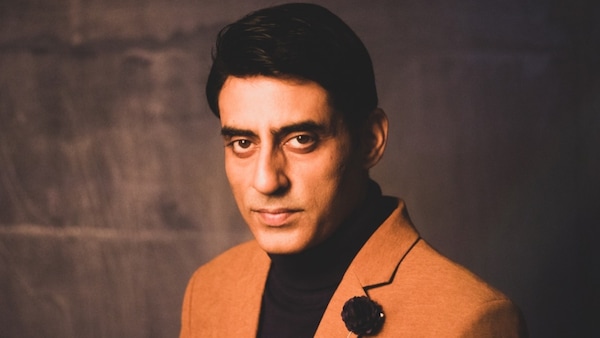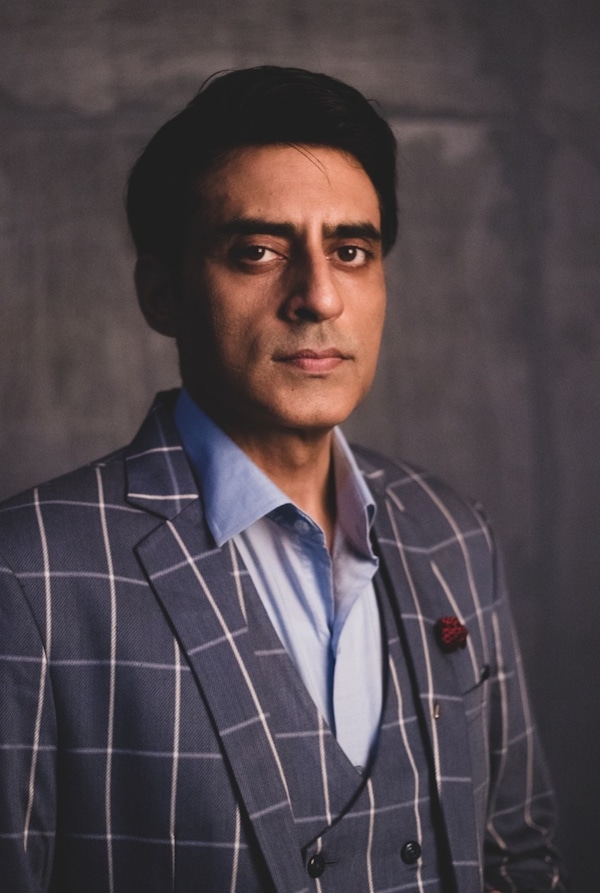Exclusive! Kashmiri Pandits need justice, not revenge: Ashwath Bhatt on The Kashmir Files
The actor, who was forced to leave the Valley with his family during the exodus of Kashmiri Pandits in the 1990s, shares his thoughts on the film and more

Last Updated: 06.03 PM, Mar 29, 2022
Known for playing memorable roles in films like Raazi, Kesari and Haider; web series like Cartel and Leila as much as he is popular for his plays Ek Mulaqat Manto Se and The Last Poet, Ashwath Bhatt has been a ray of hope for many during the pandemic. Through his venture ‘Theatre Garage Project’, the actor has supported many artists and their families, and is now in the process of launching a theatre-in-education programme at the Kashmiri Migrant School in Jagti, Jammu. Of late, though, people are reaching out to him to express their concern and compassion after watching The Kashmir Files, a film that has stirred emotions and controversies alike. A Kashmiri Pandit, who often shuttles between Delhi and Mumbai, Ashwath talks about the events covered in the film, his take on typecasting in cinema and OTT platforms, his upcoming films and more in an exclusive conversation with OTTplay. Excerpts:
The Kashmir Files has brought the focus back on Kashmiri Pandits. As a member of the community, what are your thoughts on the film?
I haven’t seen the film yet, but I know the script. I am one of those people about whom The Kashmir Files is talking about. The atrocities unleashed on Kashmiri Pandits in early 1990 were unthinkable, and it is hard for the present generation in the Valley to believe that such unfortunate things actually did happen. Even after three decades, many people are still reeling under the trauma of what took place on January 19 – the night when the fear psychosis had set in. The events and circumstances shown in the film are not untrue, although one may debate about their cinematic representation. However, it does hurt when someone says that whatever depicted in the movie is a complete lie. You may not agree with a filmmaker or his political affiliations, but that does not mean what they are showing in the film is not based on facts.
That said, I am also not in favour of revenge and hate propaganda. People making hate speeches is actually like disrespecting our tragedy. If somebody has an agenda in mind, we cannot do anything about it. But my pain and suffering are not for sale or for someone to settle their personal scores. What happened with us should not happen to anyone anywhere again. What Kashmiri Pandits need and what we have been fighting for over the past 32 years is justice and restoring of faith and kindness. These have been denied to us for way too long. Decades after the exodus, we are still waiting to be rehabilitated; to go back home and live a safe and secure life. But all the governments since 1990 have let us down.
I also don’t think that we can, at any point in time, compare human tragedies. My pain cannot be compared with that of someone else’s. All that Kashmiris, from both sides, want is reconciliation, but that can happen only when the truth is accepted. People were brutally killed, thousands of houses were looted and burned down. Those distressing memories will always stay. People need to come out and talk about it without prejudice, in the open and not behind closed doors. I don’t think anyone can deny this fact also that thousands of Muslims have also died in the last three decades after the exodus of Kashmiri Pandits. But the question that should be asked is - who brought gun culture into Kashmir and who were the facilitators?
It isn’t that no films were made on Kashmir in the past. But be it Roja, Mission Kashmir, Lamhaa, Yahaan, Tahaan, No Fathers in Kashmir or Haider, the chapter of Kashmiri Hindus didn’t find much prominence in these movies. There are thousands of human-interest stories waiting to be told about all Kashmiris. Honestly, many pandits are dreading to watch The Kashmir Files. For my own parents - who are suffering from long Covid - it would be like reliving the trauma. Ever since the film was released, we have also been receiving a lot of calls from people expressing their compassion and empathy. But the ground reality is that we have rebuilt our lives with sheer hard work and with complete focus on education. I, personally, have moved on and want to be part of the return and rehabilitation process.

You have been vocal about typecasting in Bollywood. Do you think OTT platforms are breaking that norm now?
It does not matter to me whether it’s a web series, a movie or a short film, I have always been vocal about why it’s important for an actor to break free from an image created by one particular character or film. Typecasting limit’s an artist’s versatility and their potential to do more. Personally, I love to play different characters and try different looks, which I think is also the dream of every actor. Who wants to be stereotyped? For instance, in Khuda Haafiz - Chapter 2, my character is from UP, while in Mission Majnu, it’s a historical character.
I consciously try to do different roles. It doesn’t matter if anyone recognises me while walking on the road, but they shouldn’t forget the characters I have played. But many directors/casting directors fear taking risks or experimenting. Sometimes, even though you want to be part of good projects, you’ll miss out on opportunities, because everybody wants to play safe in the industry. It’s your passion for the craft that drives you during those moments.
Of course, OTT platforms have opened doors for actors, particularly during the pandemic. Suddenly, now there is a platform for hidden talents. People who have been around for years but were not seen in films much now feature in OTT shows. Not just character artists, a lot of A-listers have also jumped on the bandwagon. Audiences are logging in from everywhere and watching films and series on OTT. People’s tastes have refined. There is now demand for fresh and good content, and creators are compelled to cast different artists to essay these various characters. The quality of narratives has changed, amid which actors are getting recognition for their work. That said, the divide that we see between stars and other actors is, unfortunately, seen in the OTT space too, while there are also instances of typecasting.
What are the new projects that you are currently involved in?
I am currently shooting for three projects - Sankalp Reddy’s spy-thriller IB71, Gaurav Rana’s independent film Mai Ladega and Hansal Mehta’s Scoop. I usually like to do one project at a time, but due to the pandemic, schedules were pushed and things are now overlapping. Apart from these films, Shantanu Baghchi’s Mission Majnu and Faruk Kabir’s Khuda Haafiz - Chapter 2 are releasing in June this year. Meanwhile, I am also playing an antagonist in my first Telugu outing - a yet-to-be-titled film directed by Hanu Raghavapudi, starring Dulquer Salmaan. This was an interesting experience because I had worked with his father, superstar Mammootty in the 2014 Malayalam film Gangster.
*Reema Gowalla is an arts and culture journalist, who mostly writes about theatre and independent cinema, and sometimes also delves into culinary heritage.
Subscribe to our newsletter for top content, delivered fast.
